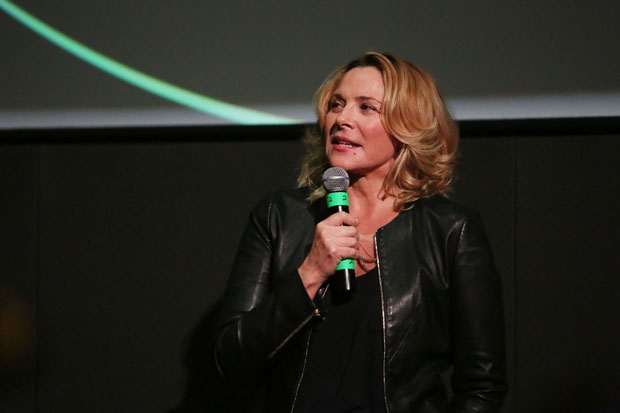There’s nothing new about Radio 3 tearing up the schedules, temporarily abandoning regular favourites such as Private Passions, The Early Music Show, Choral Evensong in search of creative freedom. Its first controller was not just given permission but instructed by the director general, Sir William Haley, to ignore the demands of Big Ben and the news schedule in favour of allowing concerts to run on beyond the hour and to be heard just as they would have been in the concert hall, with ‘live’ operas broadcast in full from Paris or New York. There was to be ‘no annotation’, no commentary on the music that had just been heard. Pauses, for as long as four minutes (unimaginable now with our demands for wall to wall sound), were encouraged, to give the music room to breathe.
More recently, under the inspired programming initiatives of the former controller Roger Wright, whole days and weeks have been devoted to the works of a single composer, Bach, Beethoven, Tchaikovsky, Mozart, seeking out new understandings, different insights into these giants of the canon, too often taken for granted and almost played and heard without thinking. But on Sunday, in a bold stroke by Alan Davey, the current controller, and his team of creative producers, 12 hours of air time — from 9 a.m. to 9 p.m. — was given over to a continuous sequence of music in an unusual celebration of the station’s 70th anniversary, modelled on one of 3’s most successful (and most inventive) programmes, Words and Music.
It sounds easy — to take a theme and string together a selection of music, poems and extracts from prose works that illustrate, convey, conjure its meaning or atmosphere. But it takes many hours to put something together that sounds effortless and yet will also resonate with the listener. Sunday’s River of Music went a step further by giving us no words, nothing in between the 70 different works, which were heard in a single stream, with no interruptions either from a piece of prose or from a studio presenter. Instead all the pieces were woven together, or rather curated, like jewels in a necklace, to create a mellifluous, fast flowing thread of sound that was designed to show off 3’s history as a music station. Old favourites of the schedule were heard alongside works specially commissioned by the station, and interspersed with jazz, electronica, theme tunes, medieval motets, each specially designed to show off what 3 has done for music and our listening habits since its birth (as the Third Programme) in 1946.
It can be frustrating to switch on the radio and spend the next few minutes racking your brain to work out what’s on. It means you don’t really listen to, or appreciate, the music until you’ve found out what it is (usually after it’s over). Rescue was at hand on Sunday with a detailed work by work listing available by logging on to the Radio 3 website where a ‘live’ conversation about what was being played between those listening and those who had spent days and nights piecing them all together was conducted by those stalwart presenters of the network Rob Cowan and Sarah Walker. Oliver Knussen told us why he thought Berg’s Altenberg Lieder should be included; Gabriel Prokofiev (grandson of the Russian composer) introduced Stockhausen’s Stimmung, composed in 1968 and first heard on Radio 3 in June 1972. Looking back at the schedule in Radio Times, it appears to have been billed, artfully, at 9.50 in the evening, late enough to avoid the wrath of the Home Counties colonels but not too late to be considered a cowardly affront to Stockhausen.
Over on 4, schedules were also overturned this weekend to make room for a special two hour reading of Ira Levin’s spooky 1967 thriller, Rosemary’s Baby, on Saturday night from 10 until the witching hour. Giving it two solid hours allowed the tension to build, and meant that the adapter, Jeremy Osborne, had plenty of time to create a complex narrative. Was Rosemary imagining it all?
In a casting coup for 4, Kim Cattrall, the Sex and the City star, made her debut on the station, conjuring up all the different characters as Rosemary and Guy Woodhouse move into their swish Manhattan apartment and meet their slightly offbeat neighbours, Minnie and Roman Castavet. Rosemary does begin to hear strange chanting from next door every Saturday night, but accepts as kindness the uplifting drinks and good luck charm Minnie gives her when she announces she is expecting a baby. Why, though, does she suffer so much pain? And what was her friend and mentor Hutch trying to warn her about before he slipped mysteriously into a deep coma?
Cattrall carries off the reading as if born to radio, seguing effortlessly from Rosemary’s sweet and silky voice to the rough and menacing Minnie and charming but spineless Guy. ‘Oh God,’ she repeats when she suddenly realises she can trust no one, not even Guy, investing those two words with such fear and panic. The production (by Karen Rose), with suitably eerie electronic music seeping through the soundscape, was seriously scary as the darkness intensified towards midnight and the candles began flickering in the draught.






Comments